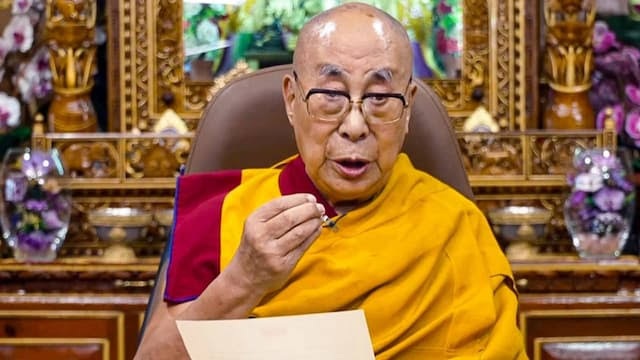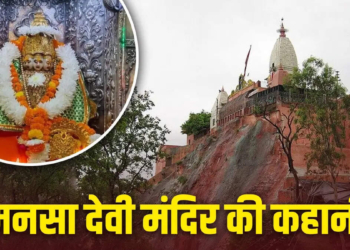On 6 July 2025, when the sun comes out on the hills of McLeodganj, the monks in dark red garments will start prayers for the longevity of the fourteenth Dalai Lama. Cake will be cut in the presence of thousands of devotees, celebrations will be celebrated and blessings will be distributed. What appears to be a simple birthday celebration of an old saint, is actually a deep political process, which has far -reaching effects. This ninety birthday is not just a symbol of longevity, but a decisive turn of the story of the moral geographicals of Asia, where soft power, succession, sovereignty and spiritual validity are being redefined. Dharamshala has become the center of diplomatic activities for the past one month. Buddhist scholars and Hollywood actors are gathering together. Tibetan school children are practicing traditional dances, while Chinese drones are hovering over the Himalayan hills.
The US House of Representatives in Washington declared July 6 as compassion day, under the House Regulation 515. This step is symbolically benign but strategically intense, which brings Tibet back to the center of the US-China policy. The announcement was made with the support of two opposing parties, indicating that Tibet is also a moral question in a divided America that has now become a matter of strategic concern.
But on this occasion, the most important thing was not by any MP, but the Dalai Lama himself said. In a quiet, pre -recorded message released a few days before his birthday, he reiterated that only the Gaden Fodrang Trust has the right to select his successor. He made it clear that “no external political power” cannot interfere in the process of rebirth. This can be common in theology, but its importance in politics is very large. This directly refutes the order number 5 of China’s 2007, which claims that the state has control over the recognition of “living Buddhas”. Through this statement, the Dalai Lama, denying the legitimacy of any successor nominated by Beijing, has made it clear who will decide the outline of power after his death.
The response to the Chinese propaganda was required, he rejected it as a “disinterested” behavior and reiterated the claim of historical right on rebirth. This is not only an ideological conflict, but a decisive struggle, to decide whose right to make a decision. In the coming decades, the religious and political structure of the Tibetan Buddhist tradition will take shape from this struggle.
India has officially taken a cautious stance so far, but recently a subtle change has been observed. The support of the Dalai Lama’s approach by Union Minister Kiren Rijiju shows that New Delhi is now considering the Tibetan issue not only a human subject, but a tool of regional power balance. Along with increasing tension on the borders of Ladakh and Arunachal Pradesh, Tibet gives moral height to India as well as strategic depths.
Outside South Asia, the Tibetan movement has received new energy through parliamentary mediums. The 9th World MP Conference was held in Tokyo in early June, in which 130 MPs from 26 countries participated. His Tokyo declaration and action plan, and proposals passed on birthdays, give symbolic sympathy as a pre-law. These proposals are not legally binding, but indicate that Chinese intervention is a global moral consent to reject any rebirth imposed by intervention.
A week later, a celebration before the Dalai Lama’s birthday was celebrated at the American Capital Bhavan and “Tibet Lobby Day”, which turned this ritual energy into legislative support. But this is not only a matter of selection of the successor of the Dalai Lama, but it is also a big question whether the style of his leadership will survive further? When the whole world is struggling with totalitarianism, populist anger and climate crisis, the Dalai Lama has emerged as a symbol of compassion politics. Like other religious leaders, he did not change the pain into complaints, nor did he allow himself to become a tool of nationalism or business interests. His political approach is based on morality, not power. They present a model of leadership that does not have the McIllian tact, but on sympathy, dialogue, self -control and mutuality.
For those who are born in exile, birthdays are not only a matter of sentiment, but a practice of citizenship, showing how cultural rituals keep the migrant community united. But this is also a warning: If the world does not solidify anything to protect the cultural, spiritual and ecological sovereignty of Tibet by passing a symbolic resolution, then cake cutting will remain just a formality. The Dalai Lama often says that compassion is blind without conscience. But now the world should ask this, is it better than only conscience, without compassion?
His ninety birthday is not just a celebration, but a mirror, for the world that has lost the confidence of believing morality as a political power. Will this trust return again, it is not just on the successor of the Dalai Lama, but also on whether the world can do a new imagination of politics, not only as victory or existence, but as a responsibility.
Harsh Pandey, Faculty of International Studies, Jawaharlal Nehru University, New Delhi is a PhD.










